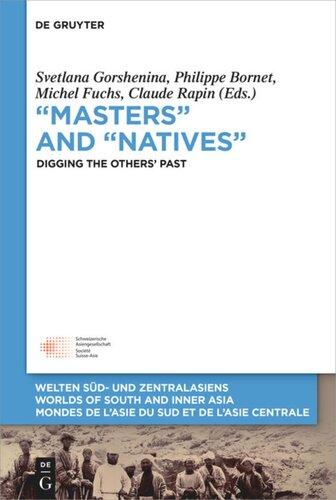

Most ebook files are in PDF format, so you can easily read them using various software such as Foxit Reader or directly on the Google Chrome browser.
Some ebook files are released by publishers in other formats such as .awz, .mobi, .epub, .fb2, etc. You may need to install specific software to read these formats on mobile/PC, such as Calibre.
Please read the tutorial at this link: https://ebookbell.com/faq
We offer FREE conversion to the popular formats you request; however, this may take some time. Therefore, right after payment, please email us, and we will try to provide the service as quickly as possible.
For some exceptional file formats or broken links (if any), please refrain from opening any disputes. Instead, email us first, and we will try to assist within a maximum of 6 hours.
EbookBell Team

4.4
42 reviewsThe book focuses on the relational dynamic between “masters” and “natives” in the construction of scholarly narratives about the past, in the fields of archeology, history or the study of religions. Reconsidering the role of subaltern actors that recent postcolonial studies have tended to ignore, the present book emphasizes the complex relations between representatives of the imperial power and local actors, and analyzes how masters and natives (and their respective cultures) have shaped each other in the course of the interaction. Through various vectors of intercultural transfer and knowledge exchange, through the circulation of ideas, techniques and human beings, new visions of the past of extra-European regions emerged, as did collective memories resulting from various kinds of appropriations. In this framework, the most important question is how these dynamic processes determined collective memories of the past in plural (post-)colonial – in particular, Asian – worlds, participating to the construction of national/imperial/local identities and to the reinvention of traditions.